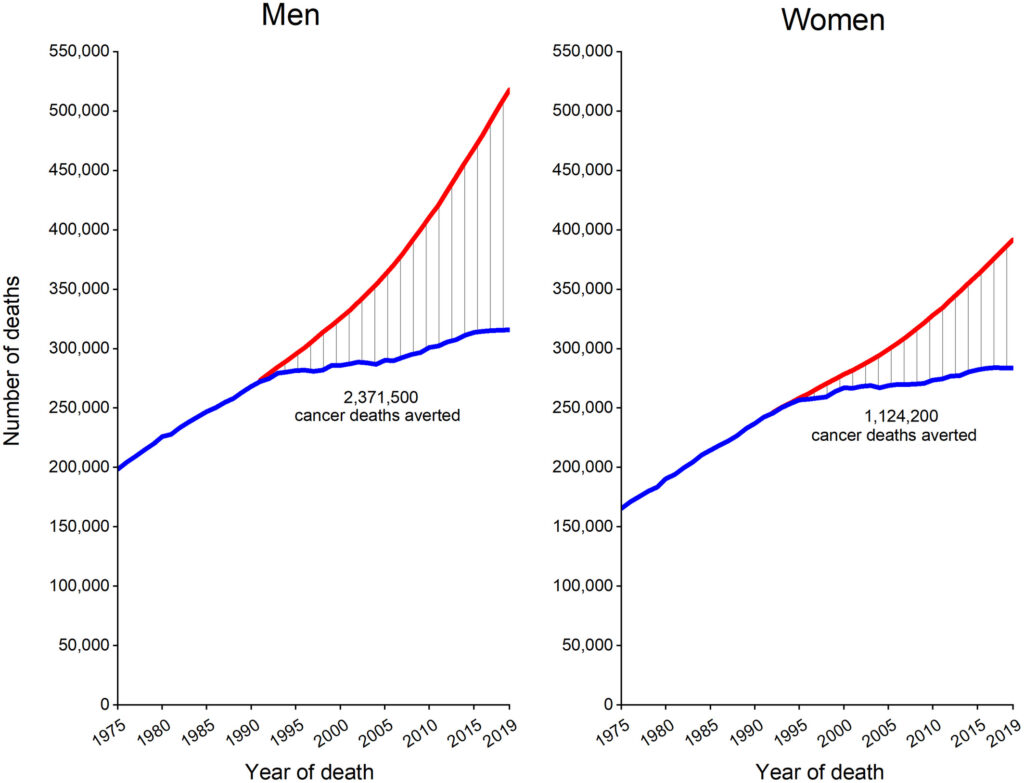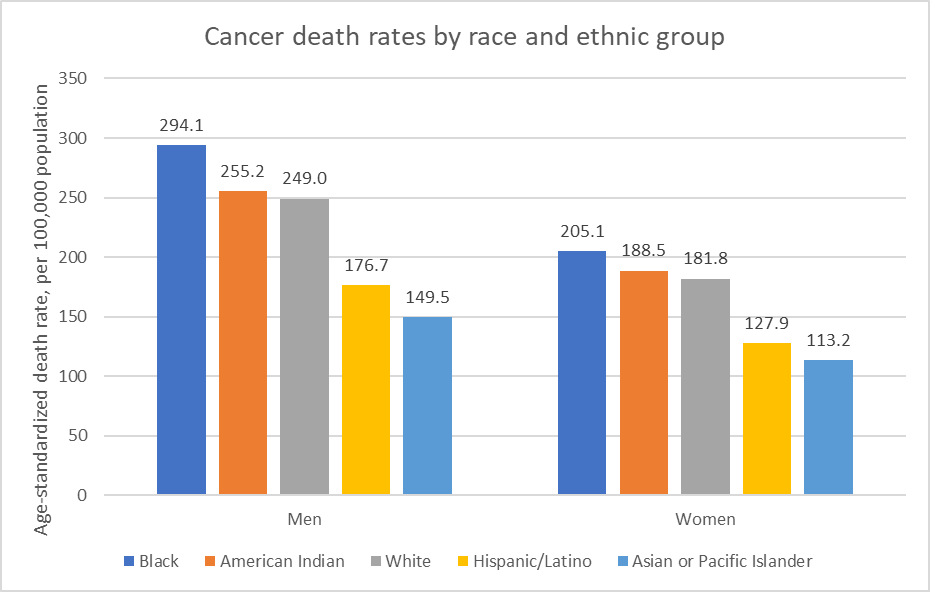Cancer is the 2nd leading cause of death in the US, just behind heart failure. Yet in recent years, we have seen that improved prevention, screening and treatment has helped to avert 3.5 million deaths in the US over the past 3 decades.

Despite these gains, we do see that cancer death rates are highly uneven across racial and ethnic groups. A study by Lawrence et al. (2022), did find that – consistent with trends in the broader population – mortality rates among Blacks have declined in recent years. Using data from national death certificate data from the National Center for Health Statistics between 1999 and 2019, the authors found that:
Cancer mortality rates among Black individuals decreased 2.0% per year from 1999 to 2019 (change, −120.1 per 100 000 population), with a larger reduction among men (change, −200.1 per 100 000 population; AAPC, −2.6% [95% CI, −2.6% to −2.6%]) than among women (−74.8 per 100 000 population; AAPC −1.5% [95% CI, −1.7% to −1.3%])… Decreases were observed for most cancer sites except the liver and uterus among older adults, and the greatest decreases were observed for lung cancer among men and stomach cancer among women.
Despite these improvements in survival, cancer mortality rates among Blacks are still much higher than any other racial group.

While the trend is positive, there is still much room for improvement in terms of how our health care system screens and treats cancer for Black Americans.

